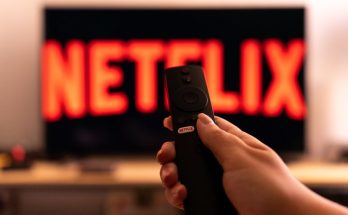
Right now, clowns are experiencing a cultural moment. You’ve seen the memes.

You’ve read the Paper Magazine interview where pop sensation Chappell Roan says, “I’ll show you a clown, if you want to see a clown!” when describing her iconic makeup look. Maybe you even bought a harlequin print cardigan during the height of the clowncore aesthetic trend in 2022. And, post-election, clowns are also showing up as descriptors of our political moment.
If anything, the clown cultural moment is only getting bigger and bigger. And if clown is everywhere right now, its contemporary center is arguably right here in L.A. More specifically, the Elysian Theater in Frogtown, where clowns are teaching classes, workshopping shows, and looking for a change from the grind of Hollywood.

Let me break it down for you.
La La Land? More like Clown Town
First things first: clowns are a century-old theatrical symbol of foolishness and naiveté that can be used to question power and institutions. That makes the artistic practice sound incredibly highbrow, but I need you to picture Lucille Ball, Jim Carrey, or Beetlejuice. It’s a highly skilled form of comedy that really utilizes physicality—pure, honest, commitment to the bit.

It’s an art form that’s grounded in humanity and absurdity.
I myself turned to clown in 2022 after signing up for The Elysian’s mailing list. One upcoming class that winter was called “Clowns on Acid: Eating Your Panties.” I was sold. After finishing grad school with a degree in journalism in May of 2020, I was feeling a bit… dissuaded and lost. Years of academic rigor followed by navigating a rapidly changing field in a world that was not the one promised to me as a young adult? Tough! I wanted to embrace the absurdity, reconnect with my theater kid roots, and try something new.
So I let longtime clown and performance artist, the incredibly tall and beautiful Kira Nova, lead me and a small group of fellow wannabe clowns into the mountains as the start of a weekend clown intensive. I was particularly taken in by a (now deleted) ten-minute video she had posted on Instagram shortly prior to the workshop, wherein she described wanting to break Americans “out of the matrix” — a world dominated by capitalism, created by a dearth of arts education and funding.
That’s a sentiment echoed by Chad Damiani, a well-known clown teacher and performer in the scene.
From professional screenwriter to father of clowns
After teaching one of his incredibly popular workshops at The Elysian, the charismatic and almost professorial Damiani said, “Clown tends to exist at times when there are people with great power who need to be taken down a few notches or institutions that seem to be completely suffocating a culture.”

Think Court Jesters, or even Charlie Chaplin in The Great Dictator. Damiani says that “clowns can go in, and their job is to break all the rules and show you that the system, the institution, is actually a lie.”
Damiani’s career has ranged from editorial assistant to an announcer for World Championship wrestling. Eventually, he landed in L.A. as a working screenwriter, taking improv classes in the evenings. That is, until he and his writing partner JP Levin sold a movie pitch based on the popular mobile phone app, Fruit Ninja.
The film never got made.
“There’s no denying what we’ve become. We are so part of the system,” said Damiani, reflecting on the experience of writing and pitching the Fruit Ninja movie.
The failure of that film is what led him to be “all in on clown.”
“I had this fruitful, amazing life at night, performing these experimental shows… And it became harder and harder to ignore how much happier I was at the things that I was making no money doing,” Damiani said.

This clown ethos also extends beyond live performance.
“The People’s Joker” rises
Filmmaker, writer, and comedy editor Vera Drew is the epitome of clown in her debut feature film, The People’s Joker.

After years of working in comedy as an editor on everything from The Eric Andre Show to Who Is America, Drew was ready for a change. She says she was starting to feel “compartmentalized to being in this very straight cis guy-dominated comedy circle” and was ready to lean into sincerity rather than irony.
During the lockdowns in 2020, as Drew was experimenting with makeup and clown aesthetics, Todd Phillip’s Joker became a comfort film. She says it felt like watching her own story and jokes that she’s seen it “8,000 times.”
This led to the creation of a feature-length length Joker parody in Drew’s idiosyncratic, alt-comedy style and enlisted the help of hundreds of artists from around the world to provide animation ranging from CG to rotoscope. The result, The People’s Joker, is a kaleidoscopic queer coming-of-age story that reimagines the Joker as a trans woman and functions as a takedown of comedy institutions like Saturday Night Live and the improv school Upright Citizens Brigade.
A strongly worded letter from Warner Bros., the studio that owns the DC Comics intellectual property (and is infamously known for throwing finished films in the trash for tax write-offs), attempted to shut down distribution of Drew’s film.
But clowns beat the system: The People’s Joker was ultimately acquired by a small film distributor and has played in theaters, received a physical release, and is also streaming online. And Vera Drew just won Best Breakthrough Director at the Gotham Awards. You can’t keep a clown down.
All this to say, in a world where it’s becoming easier and easier to get swallowed up by machines, to remove human touch and connection from art and our day-to-day lives… Vera Drew and Chad Damiani’s work affirms the necessity of clowns in our moment: making crude jokes but also asking us to think outside the frameworks of our current systems.




